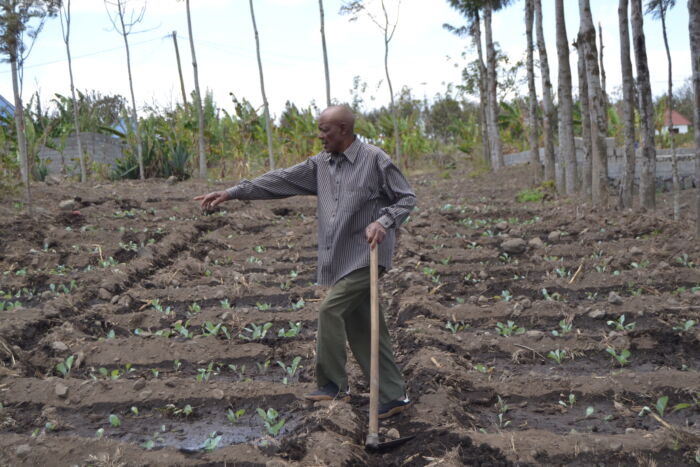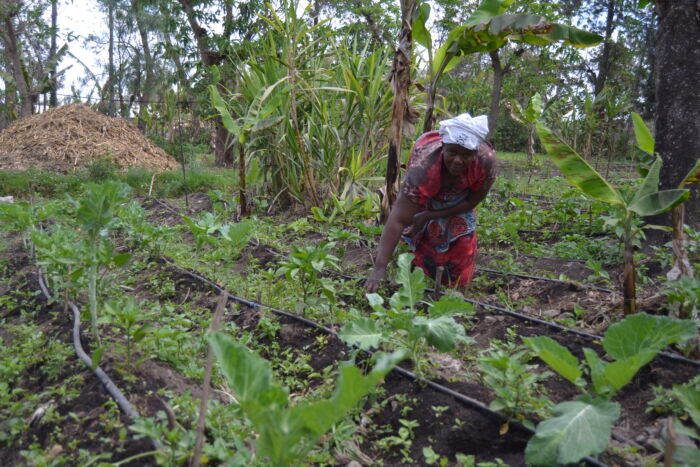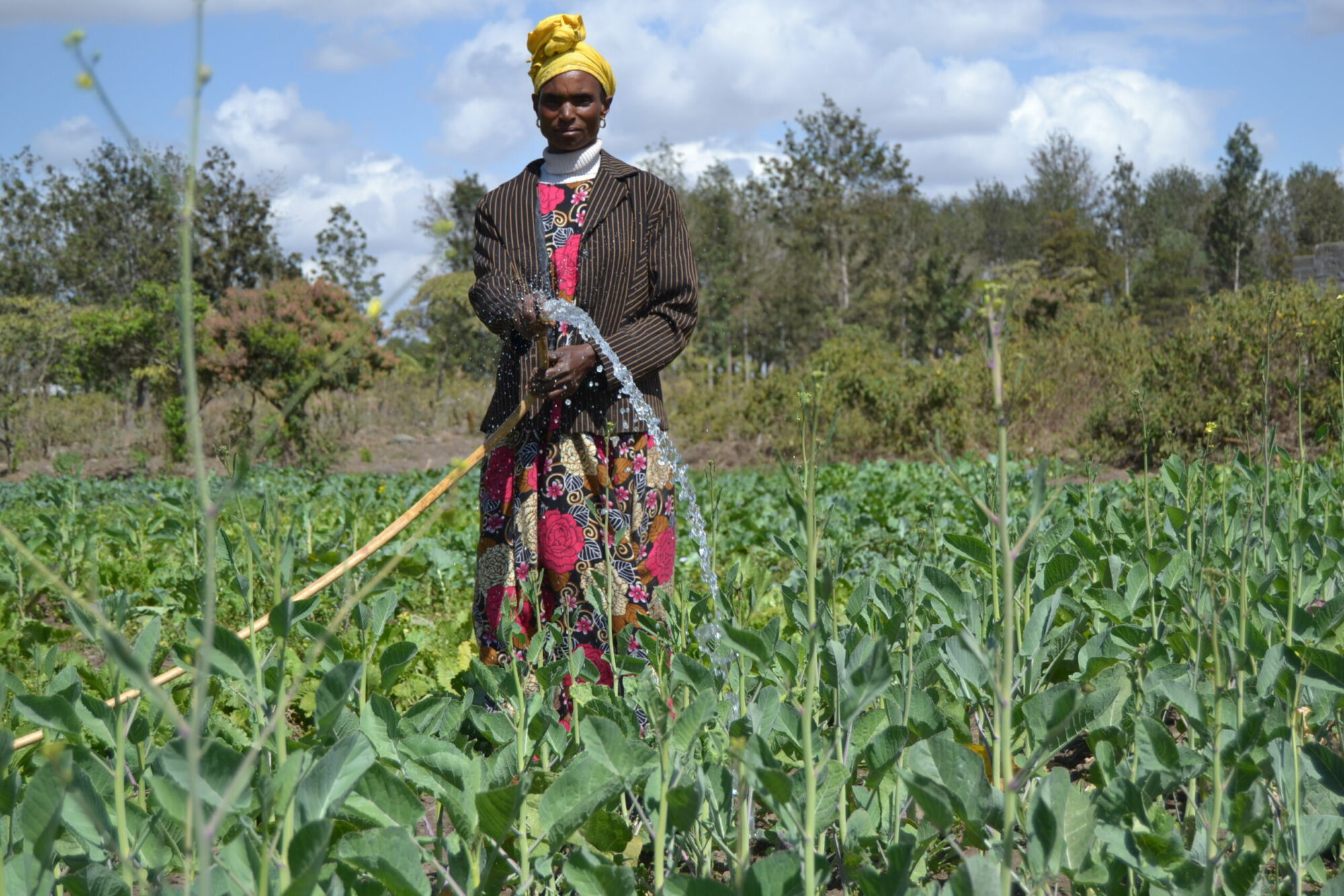Farmers have little understanding on how they can multiply seeds from one seed through their farms, reduce production costs, increase yields, and income through the seed multiplication processes.
The need for seed multiplication by farmers’ groups and networks has remained a missing link between farmers and agricultural research institutions. This means that research institutions have developed several types of seeds, but the level of supply to farmers has remained low.
Collaboration of agricultural research institutions and smallholder farmers can support them escape from purchasing fake vegetable seeds through seed multiplication since they will have full seed quality control capacity.
Farmer seed production has created avenues for income diversification and contributes to household incomes. It increases the availability of quality seeds for vegetable growers.
In most cases, the issue of seeds has to be integrated with food security among farmers and the community at large. Through the amaranth seed multiplication initiative by Mtandao Wa Vikundi Vya Wakulima Na Wafugaji Mkoa Wa Kilimanjaro (MVIWAKI) in partnership with We Effect and Tanzania Agricultural Research Institute (TARI), several smallholder farmers’ groups have been supported to venture into this agribusiness. It has supported five groups in Mendai Network (Siha), 10 groups in Mkalama and Shiri Matunda networks (Hai), as well as four groups in Kindi Network (Moshi DC). The project has enhanced food security in the region.
Amaranth seeds are of different varieties, but in this initiative, Tanzania Agricultural Research Institute (TARI) advised the promotion of three types of amaranth seeds. The specific promoted varieties are Nguluma, Nafaka (Akeri) and Lishe (Poli) seeds. More than 124 farmers (19 men and 105 women) comprising 5 groups were involved.
This was done through; several trainings, exchange visits and establishing of a demonstration plot in Siha District. The choice of seeds is important because it enhances food security, reduces the cost of production, increases access to quality seeds, and increases farm income and utilization of nutritious foods.
Amaranth is used as a leafy vegetable or as a high-protein grain. The leaves are cooked alone or combined with other local vegetables, and they are rich in Calcium, Iron, Vitamins A, B and C.
In managing the demonstration plots, representatives’ farmers, mostly women and youth from five groups in Karansi network were selected. They worked on the amaranth seeds in the less than ¼ acre farm and multiplied three categories of seeds, i.e, Nguluma, Nafaka (Akeri) and Lishe (Poli) seeds. In collaboration with TARI and Mtandao Wa Vikundi Vya Wakulima Na Wafugaji Mkoa Wa Kilimanjaro (MVIWAKI), the representatives accessed amaranth education on production, harvesting, drying, value addition, and marketing strategies.
Other members were also involved in the practical learning sessions. After learning about its benefits, many women and youth changed their attitude and perception towards the amaranth seeds. For instance, in terms of production, the amaranth seeds are harvested within 3 to 4 months (short-time crops). They contribute to increased household income due to the seeds business, and the price of value-added products like flour. The involvement of research institutes has increased the farmers’ trust in amaranth seeds.
For MVIWAKI, promoting availability of amaranth seeds to members is an opportunity to reduce the cost of production and ensure increased income to farmers.
Demonstration farm increases farmer productivity
Mtandao Wa Vikundi Vya Wakulima Na Wafugaji Mkoa Wa Kilimanjaro (MVIWAKI) used a participatory approach to ensure that its members practically apply key elements of amaranth seed multiplication. This was done in a demonstration farm where all 3 categories of amaranth seeds were cultivated. In Mendai network, members from 5 groups prepared and managed the farm on behalf of others. More than 20 groups in the Karansi ward visited the farm for learning purposes.
“After getting support to access quality amaranth seeds, I worked with other groups, to prepare and manage this demonstration farm. TARI provided us with enough knowledge about these seeds, and they made close follow-ups to ensure we grew them using the required standards,” explains Mr. Peniel Mollel from Nyota Njema Group in Mendai network. A total of 20 farmers’ groups participated in learning about the seeds and their benefits. The demonstration farm has benefited members and non-members in the Mendai network through knowledge sharing on seed multiplication. This has increased productivity hence ensuring food security.

In managing the amaranth seeds demonstration farm in Mendai network, a few challenges were encountered, as told by Madam Benedicta Mollel of Nyota Njema Group. “The amaranth seeds need very little water for irrigation in order to harvest quality seeds. You can grow these seeds in a season with low rainfall. However, another challenge is pest infestation, such as whiteflies and ants. Generally, these kinds of seeds need moderate weather to avoid loss of seeds before harvesting Heavy rainfall damages the plants by causing them to fall over.’’
Due to these challenges, MVIWAKI, through the support of We Effect and TARI, has provided several pesticides to the farmers. This will ensure that they control the pests in the demo plot. “Despite these challenges, we have managed to control pests by applying very light pesticides which are not harmful. We will promote these seeds to our fellow farmers groups within Siha District to increase seeds production, increase their income and emancipate our farmers from poverty,’’ tells Mr. Peniel Mollel.
Farmers are, encouraged to adopt agroecological practices to control pesticides. They made and used their own pesticides to control pests. Mr. Penial Mollel explains, “Within our group, we made our own pesticide from local materials like neem tree leaves. The process involved crashing the leaves, breaking solanum, mixing tobacco and animal urine, and combining all these with five litres of water, then covering it for a period of 14 days. Thereafter, we filtered it, and it was ready for use. After 7 days, the amaranth is safe for consumption or to take to the market. Unlike chemical-filled pesticides, locally made pesticides are safe for human consumption.’’
In Tanzania, there is an unmet demand for high-quality seeds that farmers can use to increase yields and profits. To address this deficit, We Effect in partnership with MVIWAKI, is working with TARI a government research institution to train smallholder farmers. Farmers will be required to produce high-quality seeds through seed multiplication — the production of multiple seeds from one seed.
Farmers will then sell the seeds and share information about proper farming practices with other farmers, to help them maximize their yield. These services help Tanzania meet the growing population’s food needs while simultaneously providing farmers opportunities and revenue streams.
Another beneficiary is Hellen Michael Kimaro, a smallholder farmer and pastoralist with Ebenezeri Group in Mendai network. “TARI has supported us with quality seeds and I am now a proud amaranth farmer.” “After these seeds mature, we leave them to dry. This assures us of the availability of seeds and also allows us to sometimes use them for food. Its leaves are very nutritious and the seeds can also be processed into flour, which is normally used to make porridge. We benefit greatly since we sell a kg of amaranth flour at Tsh 7000 (SEK 34) to 8000 (SEK 39) .’’

Income and Health benefits
Women groups are mostly engaged in horticultural farming. The amaranth seeds multiplication initiative enhances their farming activities by adding another advantage in the form of vegetable crops. This assures them access to improved farm income.
“After acquiring knowledge through our demonstration farm, we have realized amazing benefits from the amaranth seeds. It has empowered me to start my own home garden where I produce the seeds. I also process them to produce nutritious and healthy flour,” says Hadija Hemed Mushi from Bondeni group.
The nutritious flour is currently retailing at Tsh 7000(SEK 34) to 8000 (SEK 39) per Kilogram. This has boosted my income and supported my family. She adds, “In my garden, I can harvest up to 50 Kgs or more of amaranth seeds. It assures my family of a minimum of Tsh 140,000 (SEK 684). Also, through our groups, we grow these seeds and get income, enabling us to pay school fees and provide health care and medication for our families.’’
Smallholder farmers and mostly women are assured of an increase in their income since most of them are facing difficulties in meeting their food needs. It also leads to improved food security among farmers in their groups and networks.
When food is available, malnutrition challenges are solved to a greater extent. This is possible among households with adequate calorie intake or with a sufficiently diverse range of foods. In this project, amaranth seeds are used for food diversification among households.
“We received and planted amaranth seeds and are therefore assured of sustainable seed availability after harvesting. This will improve our nutrition, more so that of our children and the elderly. An alternative is selling, which will involve mixing amaranth with other cereals to get corn flour, which is also used to prepare bites and biscuits. “Other expected amaranth harvest is ‘Nguluma’ seeds, where we get roughages rich in vitamins,” explains Mariam Kihiyo from Nyota Njema Group and chairperson of Mendai network.
Her sentiments are echoed by Monica Kimbi from Nazareti Group, who appreciates the knowledge acquired through the amaranth seeds’ demonstration plot. Farmers now know that we can grow amaranth as well as generate an income from this wonder seed. We will also substitute it with our meals by buying other types of food crops, such as maize and bananas, to help improve our families’ nutritional needs. If we farm this amaranth on large farms, we are assured of a higher income, and this will help improve our livelihood. I am grateful for this farm since I have acquired more farming knowledge. I now have a huge task to replicate the same on my farm.
Demonstration farms for good agricultural practices and improved seedlings.
We Effect supports Mtandao Wa Vikundi Vya Wakulima Na Wafugaji Mkoa Wa Kilimanjaro (MVIWAKI) to facilitate seed multiplication initiative for improving food security to farmers’ groups and networks. MVIWAKI has facilitated several trainings and workshops related to the seed multiplication initiative. They have also organized exchange visits, and follow-ups to demonstrate farming of amaranth seeds as well as the management and processing.
Happiness Abraham Mmari from Nazareti group thanks We Effect for promoting multiplication of amaranth seeds, which will guarantee improved income from low to medium. It will also improve our livelihood at the family level, improve our nutrition and provide us with seeds for other uses.
We will collaborate with other farmer groups to buy and grow these amaranth seeds. Other efforts will be visiting each other’s demonstration plots to learn and improve our skills.
